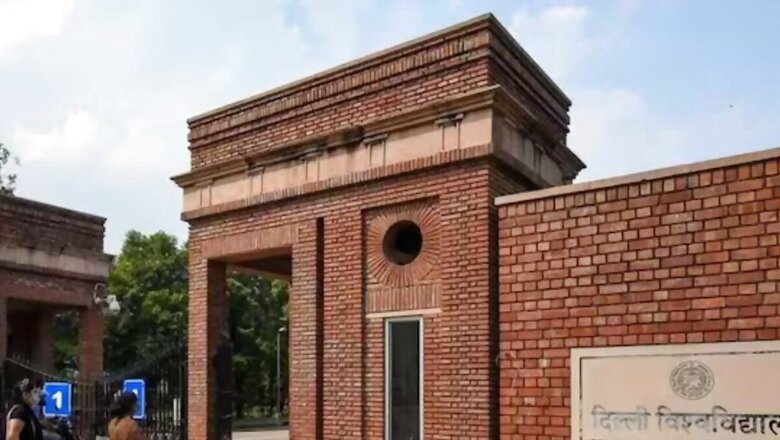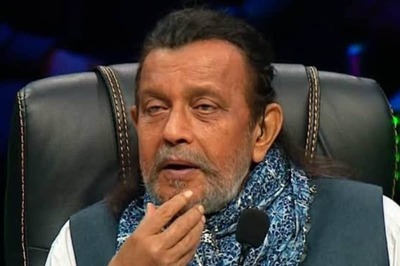
views
Today marks the three years of National Education Policy 2020. With an aim to completely overhaul the Indian education system, the Narendra Modi-led government introduced the policy with much fanfare. It is fair to say that the National Education Policy or NEP 2020 has broken some conventional career routes and tried to adopt skills and knowledge that suit the current and future market demands. It not only aims to transform the education sector from K to 12 but also focuses on early childhood care and learning, teacher training, and student exchange programs. It emphasises on student-centric approach by paving the way for multiple entry and exit points for UG courses.
Also Read: Three Years of NEP 2020: From ‘Indovation Centres’ to FYUP, Implementation of Policy in HEIs
Delhi University is the only university across the country that has adopted the NEP 2020 model in a full-fledged manner for its UG courses, claimed VC Yogesh Singh. While for PG courses, the process is underway, he added. However, several students seem unsure about the varsity’s implementation of NEP. “I fear whether the process will be seamless or not. Sometimes it takes a lot of time for the administration to respond and the process of entry and exit can get delayed,” said one student.
“Entry-exit options for the students is a good step but has the potential to increase or decrease the student ratio with that of teacher and class size,” said another, who wished not to be named.
“If a candidate enters DU in the first year and exits at the start of the second year and after a year wants to re-enter in the second year of the course, how will his or her admission take place? What criteria will be followed, will he or she have to re-appear for CUET or other eligibility elements will be put to play? Further what will be the chance of the students to get a re-entry among other students who would have also applied for re-entry,” a protesting student from a student association said.
Also read| ‘Privatisation A Myth For NEP,’ Says DU Vice Chancellor Yogesh Singh
“DU administration has not cleared whether a first-year drop student can continue his second year from the same college or can migrate to another college under the migration policy during admissions in university,” said another protesting student.
Meanwhile, a student from Ramjas College pursuing Hindi Hons believe that the multiple entry-exit option is good, “especially for students with financial constraints. Moreover, after a year in UG, if a student comes to know his or her real interest, they will have the option to stop investing in the UG course and take the certificate or diploma from the DU and can then pursue the other course.”
Also Read: NEP 2020: Will ‘PARAKH’ Streamline Students Assessment, Evaluation Rules Across State Boards?
The policy offers students the flexibility to leave a UG course after completing a year or two and get the corresponding certification. For instance, if a student leaves a course of four-year duration after one year they will get a certificate, while after finishing it in two, they will get a diploma. After three years they will receive a degree.
Students won’t lose any credits if they take a break from their studies and then resume thanks to the NEP 2020, says a philosophy professor at DU. “With this change, students will be able to create their own degrees. More freedom than ever before will be given to students to choose the major and minor courses they want to take. There are chances that it can revolutionise the Indian higher education system where only interested students with aptitude and determination to learn a subject will complete the degree through multiple entry and exit point system.”
Continuation With Credit Based System
A credit system is a methodical technique to categorise a curriculum by assigning credits to each of its elements. In essence, a credit is a unit of measurement for coursework. The number of “credit hours” that a student must study for a course is how much work they must do. The amount of time allotted for each sort of course or course activity. These hours must be completed by students in order to receive the credits they earn. For instance, a student might need to spend 28 hours in the lab to obtain 14 credits. The system is significant for a continual assessment of a student’s development and growth.
“Credit-based system gives ample opportunity to a learner to pursue education as per his or her choice. Additionally, it offers various avenues for the teachers to assess the student capabilities and competencies with holistic development,” said an ad-hoc teacher from Hindu College. While a student from DU said, “Since I need to achieve various credits, I fail to devote time to any particular subject.”
National Research Foundation Bill
Lately, the Indian Union Cabinet approved the National Research Foundation Bill with an aim to strengthen, catalyse and channel interdisciplinary research to accelerate India’s ambitious development agenda, through impactful knowledge creation and its translation. It also aims to minimise the duplication of the research. The foundation will emphasis on domains like science, arts, humanities, innovation, and entrepreneurship.
“It is a positive step and will promote the uniqueness of the research content else many opt for duplication. These duplications thus do not make India’s research worthwhile as compared to other countries. Funding is an issue but I hope this foundation works well and at least makes the stipend of PhD scholars at par with international standards,” a PhD scholar in management said.
Another scholar pursuing his PhD in classical studies said that recognition is given to researchers from Science or STEM backgrounds usually in India and not to those from humanities. “As PM will chair the grouping, I hope the same value is given to every domain including the stipend level as well which is really important for us,” he said.



















Comments
0 comment